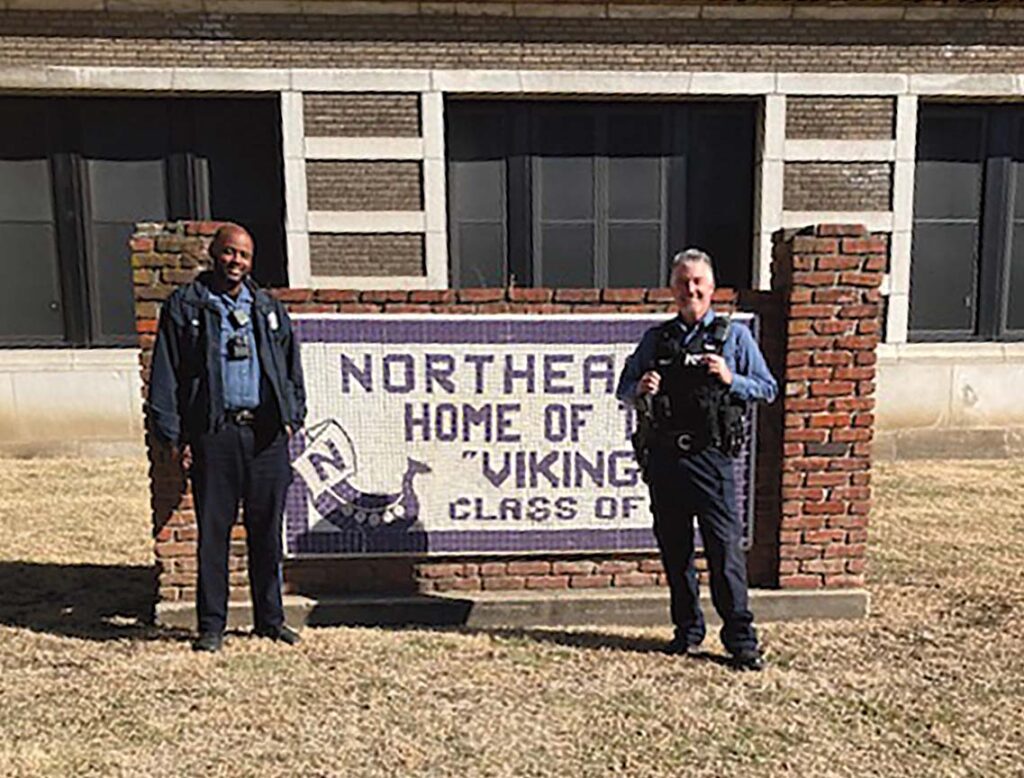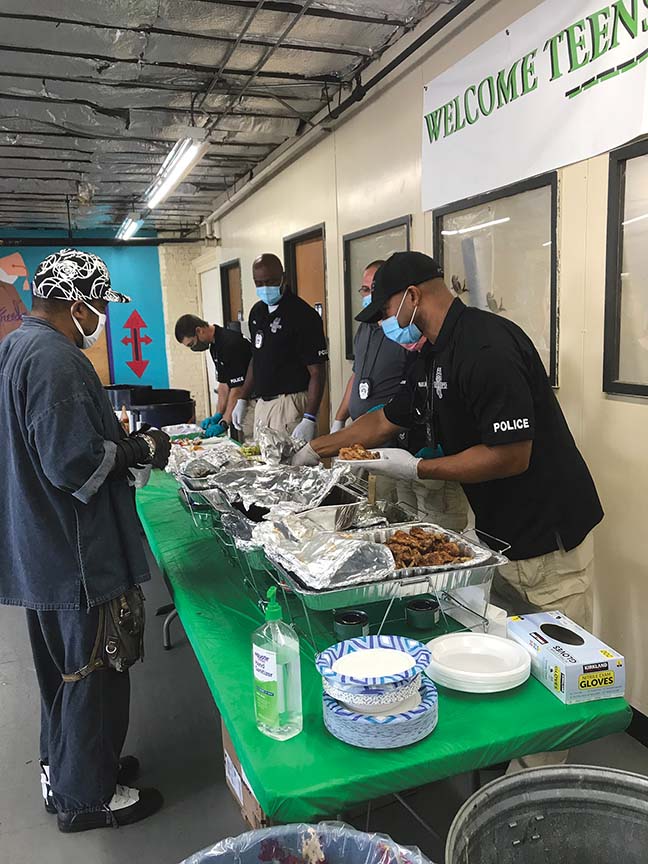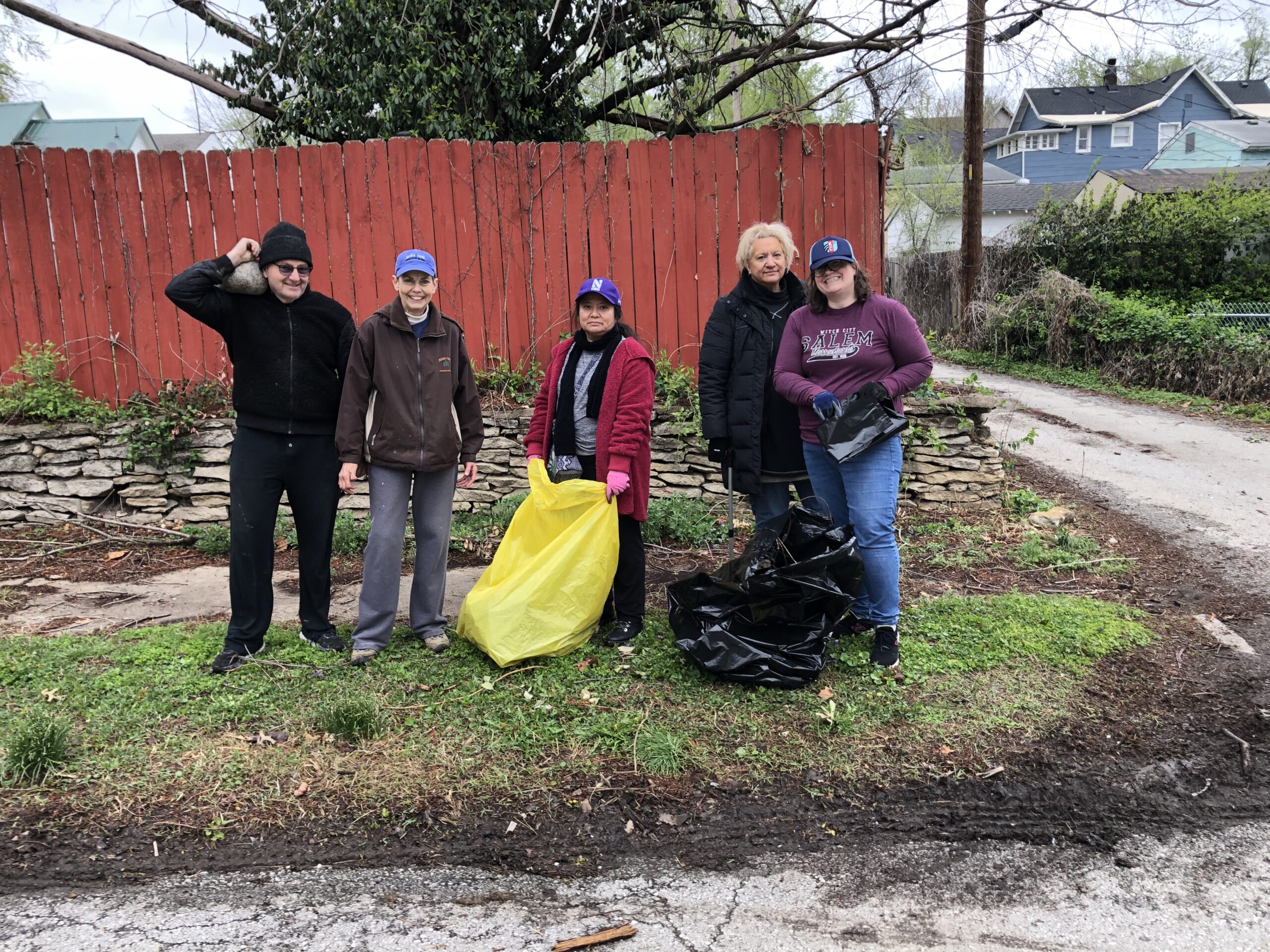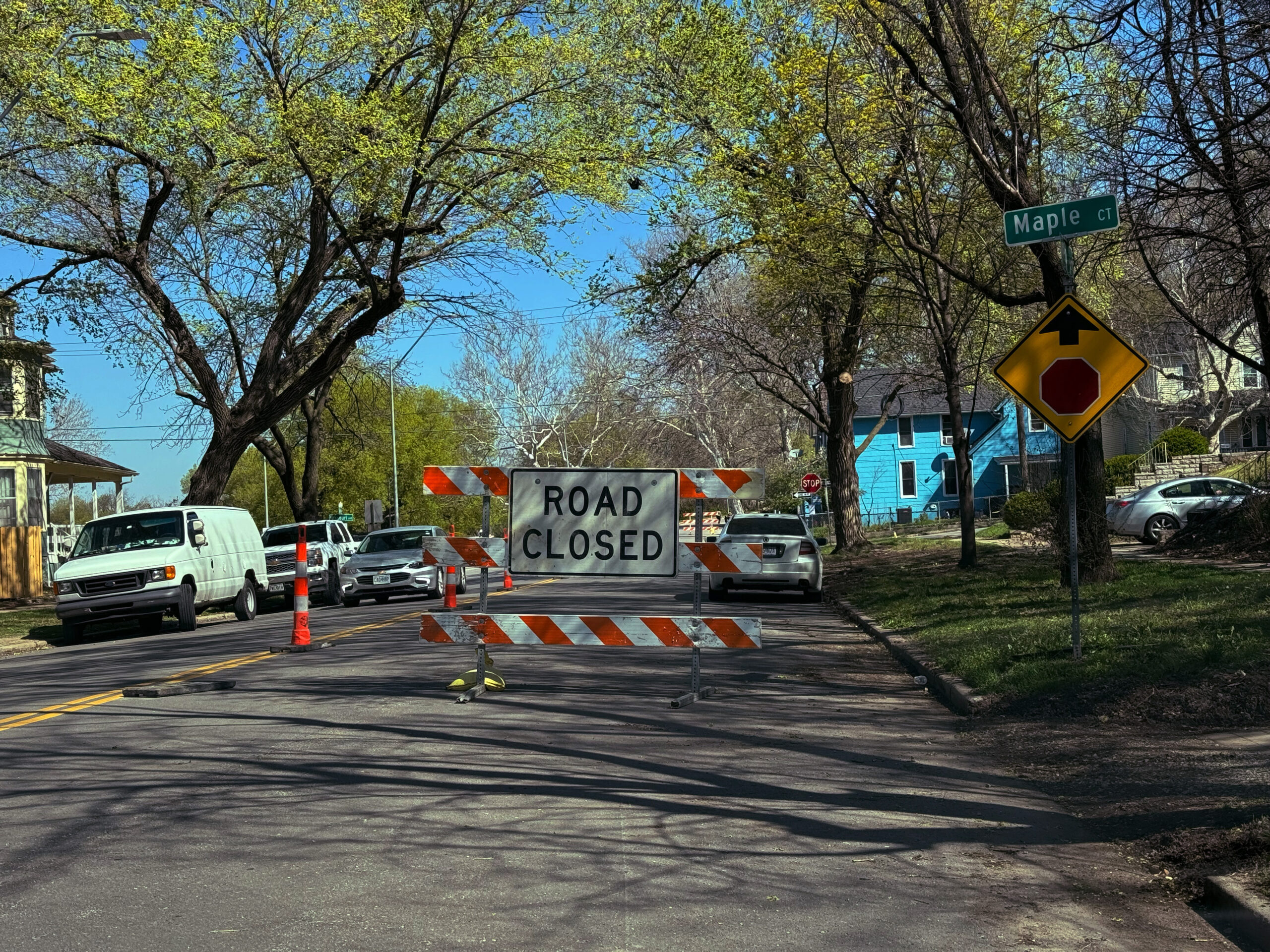
Grace Kertz
Editorial Assistant
Kansas City Public Schools (KCPS) has six Kansas City Police Department (KCPD) School Resource Officers (SROs), with two assigned to Northeast, two at Southeast and two at Central high schools.
According to Officer Jamie Walk, an SRO at Northeast High School, schools typically have two for the safety of the officers. These SROs are in addition to school security officers, who have police authority on school property, and patrol officers, who keep watch over district property around the clock.
SROs have distinct tasks, with a role unique from school security officers and patrol officers. They monitor, document and even make arrests. Additionally, they form relationships in the schools, mentor students and educate in the classroom.
“I know having the SROs makes the schools safer,” KCPD Sergeant Katherine Coots said.
Coots has been with the department for 28 years, serving as a sergeant for 18 of those years, and is currently Sergeant of the Youth Programs section. She’s seen firsthand the work SROs have done in the school and its effect.
“You can really tell a difference between the relationships officers have built with the staff, and the parents, and the students.” Coots observed.
Staff, parents and students all interact with the SROs. SROs walk the hallways, are in the cafeteria and remain visible in the schools. This prevalence allows students to have frequent conversations with them. SROs also interact with students by serving as guest speakers in the classroom.
“We give drug education classes. We talk about how to act if the police pull you over in a car. Sometimes kids see what they see on TV, and we tell them that’s not the thing to do,” Walk stated, sharing some topics they educate on.
Coots remarked that the SROs in Northeast High School are getting certified to teach Drug Abuse Resistance Education (DARE). Officer Walk and Officer Antonio Hill will attend this training in September. Currently there are three DARE certified SROs serving in the district.
“The DARE officers go to about 63 different schools in the Kansas City Area,” Coots shared about their reach.
DARE officers teach a program with a 10-week core curriculum once a week. The content of the presentation varies depending on the grade level. This education and relationship-building is integral to increasing safety.
“The best way to deter crime in the schools is to have respect from the students,” Walk said.
Walk contended that just by being in the school reduces crime. SROs are also prepared to respond to incidents should they occur. If there are police reports to file or arrests needed, SROs can handle that instead of calling a street officer in.
While no new safety measures are being implemented this school year, clear backpack policies are being introduced at selected KCPS sites.
Beyond their varying procedures, it’s consistent that SROs work to improve schools. In 2022, State Representative Mark Sharp, D-37 MO, said he planned to introduce a bill to assist schools in the funding of SROs, making it easier for each school to have one. The Northeast News contacted Representative Sharp for current details, but he passed on the opportunity to interview.
“I would love to have SROs in every single one of our schools… unfortunately, we’re short here at the police department,” Coots stated. Coots described the next part of their SRO team’s expansion could be into East High School. But, Coots stated, “It doesn’t matter if [schools] have all this funding… if we don’t have the bodies.”
“We have a manpower shortage throughout the police department,” Walk agreed.
Besides building relationships with students and adding an extra element of safety in the schools, SRO’s also educate students on potential careers in law enforcement.
“I want our officers to play a more active role in the recruiting process,” Coots expressed.
This is being done by informing high schoolers of the opportunities within, and benefits of working for the KCPD. SROs have three-ring binders listing all the posted jobs and monthly pay, have brochures to give away at events and have posters. The relationships the SROs have established with the students is fundamental.
““The SROs do dozens of mentoring sessions every week where they have kids in their office,” Coots said.
These sessions would be a place to discuss opportunities with interested students. Beyond that, Coots looks forward to future SROs benefitting the schools.
“I think the officers that are there have laid down the foundation for any officer who walks into the school,” Coots stated.
Officer Walk has been laying this foundation since 2007 when he became an SRO at Northeast High School. Officer Hill also signed on in 2007. They’ve seen kids grow up, get jobs, start families and beyond. Walk shared that the SROs work every graduation. Even upon leaving, some students return to talk with the officers, and perhaps show off their baby.
“We’ve been a part of their lives,” Walk expressed.
SROs increase safety from the inside out, from building relationships, mentoring and educating to monitoring halls and directly addressing crime in schools.

















